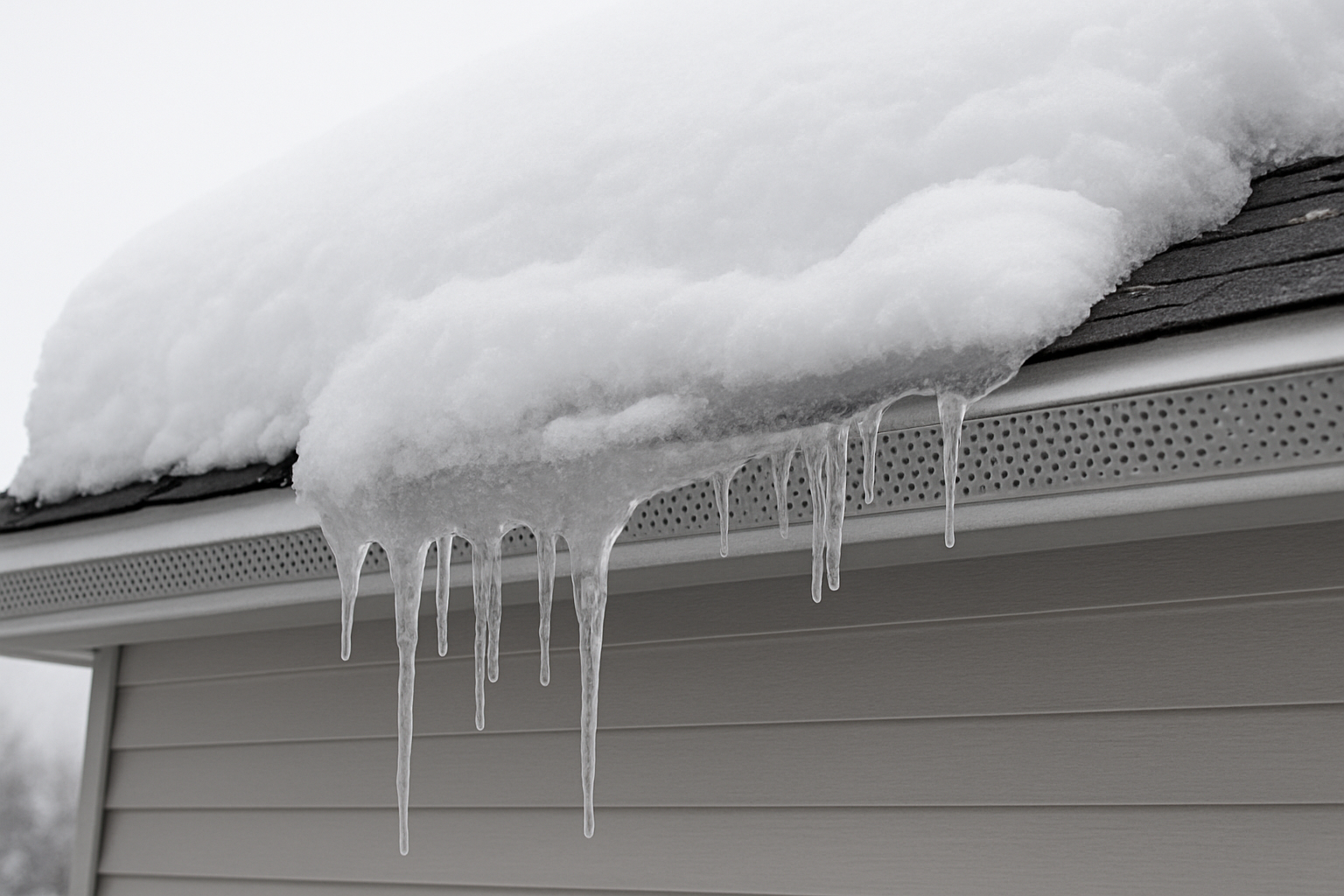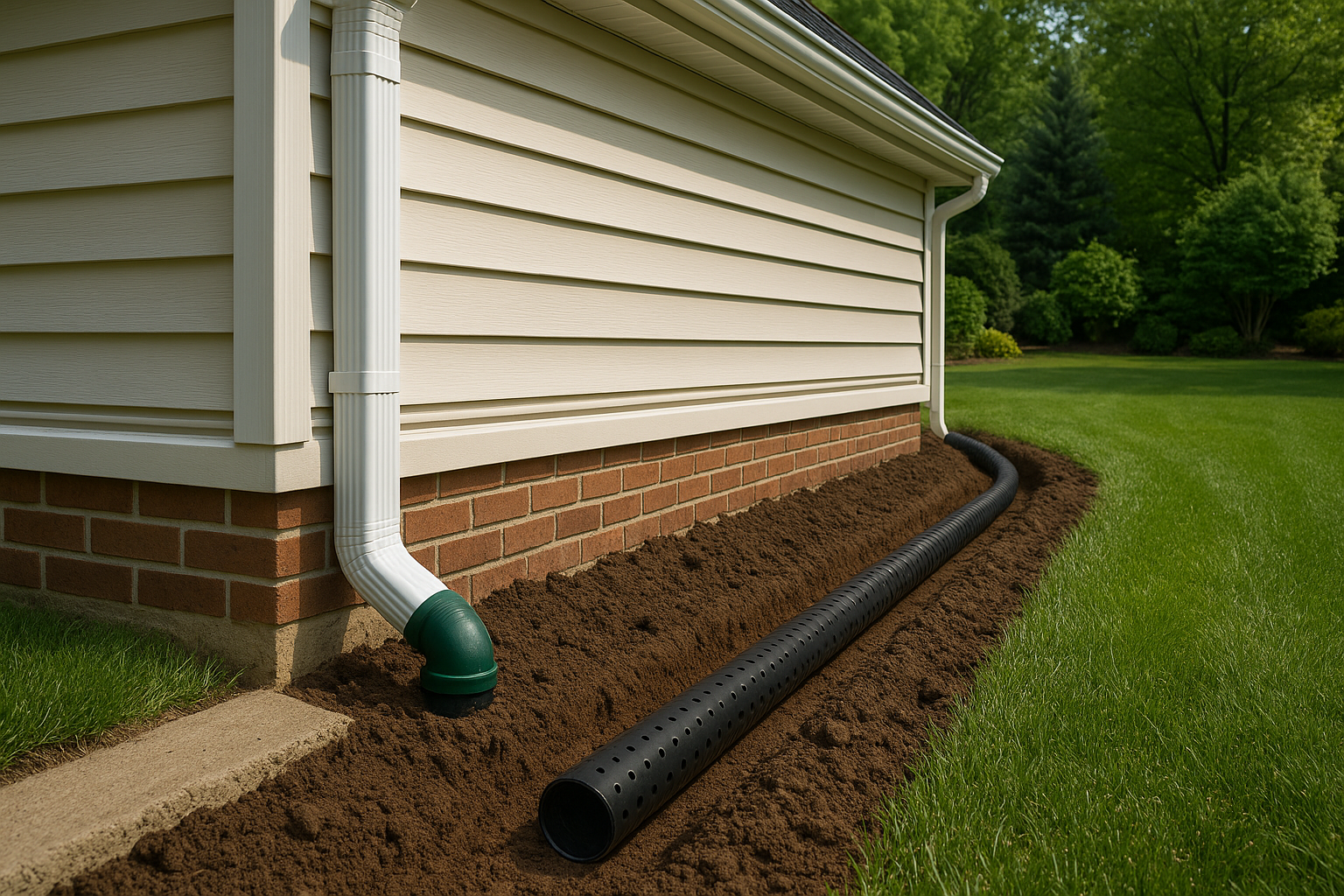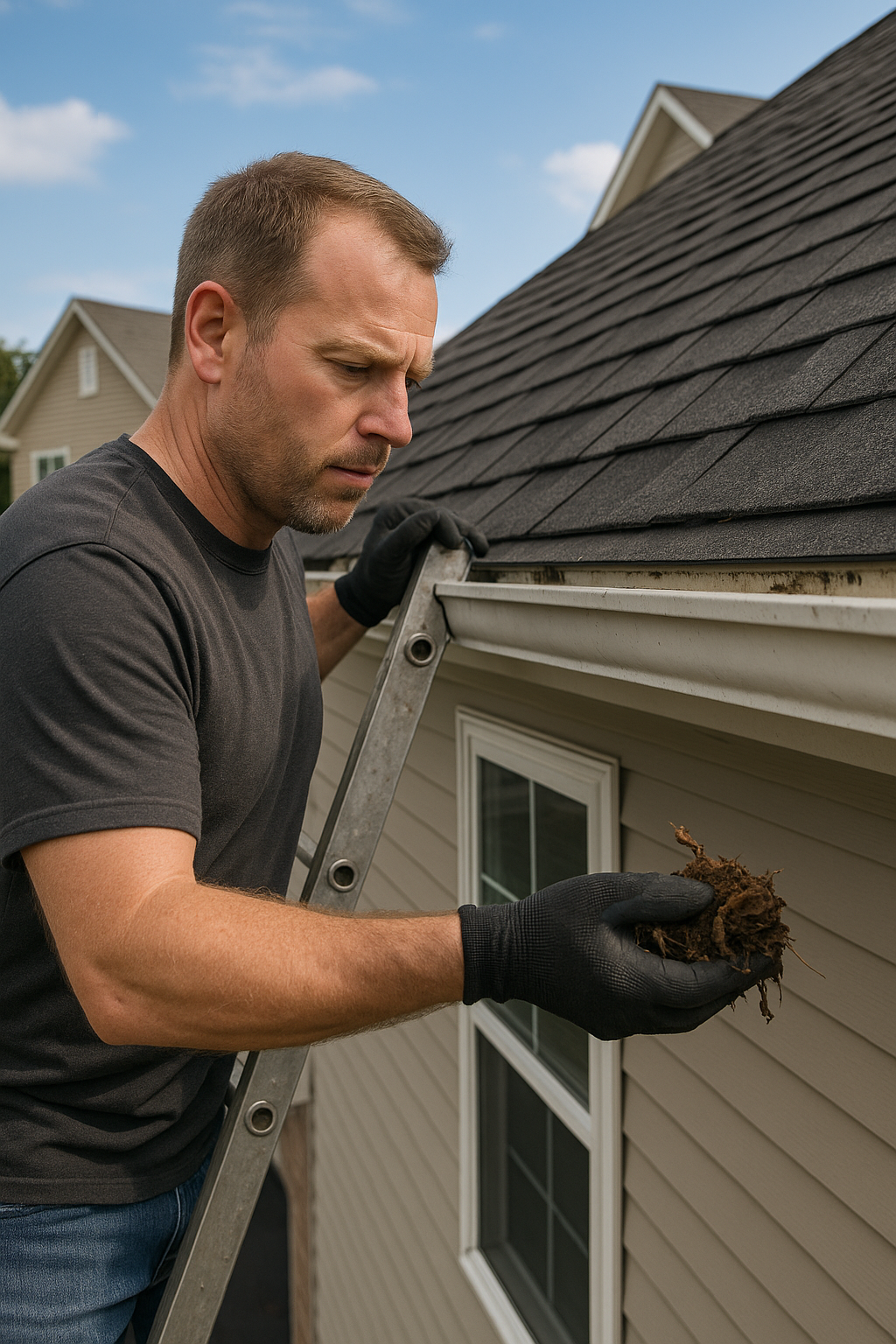Are Gutters Necessary for Your Home’s Roof and Foundation?
If you’ve ever wondered whether gutters are necessary or if they’re just another box to check on a contractor’s list, you’re not alone. Many homeowners are surprised to learn how much rainwater, runoff, and potential water damage a well-designed gutter system can prevent. And in some cases, gutters may not be necessary—but those are the exceptions, not the rule.
In this guide, we’ll break down everything you need to know about gutters, their role in protecting your roof, siding, and foundation, and why they’re typically necessary for your home. Whether you're planning to install gutters or deciding whether to upgrade, this article will help you make the right call for your property.
Key Takeaways
- Gutters are necessary for most homes to prevent water damage, erosion, and basement flooding.
- Without gutters, rainwater can wreak havoc on your foundation, roof, and landscaping.
- In dry climates or naturally sloped yards, gutters may not be necessary, but those cases are rare.
- Choosing the right type—k-style gutters, round gutters, or seamless gutters—depends on your home and budget.
- Gutter installation not only improves drainage but also boosts the aesthetic appeal of your home.
- Gutter guards can make ongoing maintenance easier and prevent clogged gutters.
What Role Do Gutters Play in Protecting Your Roof and Foundation?
Gutters play a crucial role in keeping your home safe by managing rainwater runoff. When rain falls on your roof, it needs to go somewhere. A quality gutter system catches that rainwater and channels it through downspouts, moving it safely away from your foundation. Without this redirection, water can pool around the foundation, weaken structural integrity, and even cause basement flooding.
Why Water Management Matters
When water collects at the base of your home, several problems can follow:
- Foundation damage from repeated water pressure.
- Soil erosion that shifts landscaping and pathways.
- Water seepage that causes mold, mildew, or basement dampness
- Staining and rot on siding and fascia
By installing gutters, you’re not just diverting water—you're preventing thousands in costly repairs down the line.
Are Gutters Always Necessary for Your Home?
Not every home needs gutters, but most do. Whether or not gutters are necessary depends on the home’s design, slope, and surrounding environment.
When Gutters Are Absolutely Necessary
- You live in an area with moderate to heavy rainfall.
- Your roof has multiple slopes or valleys.
- Water tends to pool around the foundation.
- You’ve seen signs of erosion or staining around the perimeter.
Situations Where Gutters May Not Be Necessary
- Homes built on a hill with excellent natural drainage
- Properties in extremely arid climates
- Structures with extended eaves that redirect rainwater away from the house
Still, even in dry climates, gutters help prevent rare storm damage. And if you’re in a region that’s experienced a shift in weather conditions, don’t assume you’ll never need a gutter system.
What Happens to Rainwater Without Gutters?
If you don’t install gutters, that rainwater doesn’t magically disappear—it finds its path. And unfortunately, that path often leads straight to trouble.
What Rainwater Does Without Gutters
- Runoff without gutters falls directly at the base of your home.
- It creates trenches that erode the soil.
- Water seeps into crawl spaces or the foundation of your home.
- Pooled water increases the risk of basement flooding.
- It damages landscaping and contributes to mold and mildew.
Over time, uncontrolled rainwater can damage the roof, rot wood trims, and even blister and peel the paint on your siding.
Quick Comparison: Gutters vs. No Gutters
| Feature | With Gutters | Without Gutters |
|---|---|---|
| Rainwater control | Controlled flow | Uncontrolled pooling |
| Foundation protection | Keeps water away from the foundation | Risk of structural erosion |
| Home exterior preservation | Maintains siding and trim | Higher risk of staining and decay |
| Basement protection | Reduced flooding risk | Increased basement flooding |
In short, gutters are necessary for almost every climate, and gutters serve as your first defense against runoff.
How Do Gutters Help Prevent Water Damage and Erosion?
Water always finds a way—and gutters help make sure that way isn’t through your home’s walls, floors, or footing.
Gutters Serve a Functional Purpose
A properly installed gutter system channels rainwater away from the roof and foundation. It captures water and directs it through a downspout that empties into a drain or sloped yard area.
This reduces:
- Erosion of soil around your home.
- Splattering of mud and dirt onto the siding.
- Rotting of fascia boards, soffits, and decking.
- There is a chance of ice dams forming in colder months.
Clogged gutters can reverse these benefits. Overflow can cause gutters to become detached, and excess weight from debris or frozen water can cause damaged gutters or even pull on your roof structure.
Whether you have metal, round, or K-style gutters, regular maintenance ensures they continue protecting your home for years.
When Are Gutters Not Necessary?
Gutters may not be necessary in some situations, but these are rare and highly specific. The assumption that gutters are not necessary often comes from outdated advice or homes in extremely dry regions.
When Gutters May Not Be Required
- Homes are built on steep slopes where water naturally drains away from the home.
- Arid climates with minimal annual rainfall.
- Properties with wide overhangs that redirect water far from the foundation.
- Homes with exceptional drainage system designs are built into the landscaping.
Still, even in these cases, skipping gutters comes with risks. One unexpected storm can cause rainwater to pool around the foundation, causing foundation damage, erosion, or long-term moisture problems. For most homeowners, skipping gutters is a gamble.
Why Most Homes Still Need Gutters
If you're unsure, ask yourself:
- Do I see water runoff after storms?
- Has erosion occurred around my home?
- Are there stains or streaks on the siding or foundation?
- Has my yard begun to pool around the edges after the rain?
If you answer yes to any of those, it’s time to install gutters on your home.
How to Know If You Need to Install Gutters on Your Home
The need to install gutters isn’t always obvious. For new builds or recently purchased homes, some homeowners find out the hard way, after a heavy rainstorm and a flooded crawlspace.
Signs You Need Gutters Installed
- You notice water pooling around the foundation or walkways.
- The roof runoff is creating trenches in flower beds or landscape edging.
- Water is splashing onto your siding, causing staining or rot.
- You’ve experienced basement flooding or high indoor humidity.
Even if your home came without gutters, that doesn’t mean it was built correctly. Some builders install roofing systems without gutters in order to cut costs, especially in dry regions. But that doesn’t mean you may not need gutters down the road.
If you’ve seen signs of damage or uneven runoff, it’s a clear indicator that your home will benefit from a properly installed gutter system.
What Are the Different Types of Gutters You Can Install?
Choosing the right gutter system for your home depends on your style, budget, and regional weather conditions. Different types of gutters offer unique benefits, from form to function.
Popular Gutter Types
K-Style Gutters
These are the most common and affordable. They resemble crown molding and offer excellent rainwater capacity, making them ideal for homes in areas with frequent storms.
Round Gutters
Sometimes called half-round gutters, these are traditional and stylish. While not as efficient as K-style options, they offer better aesthetic appeal for historic homes.
Seamless Gutters
Built from a single piece of metal, seamless gutters reduce the chance of leaks and clogged gutters. They are custom-fitted during gutter installation and provide a clean, streamlined look.
| Gutter Type | Pros | Ideal For |
|---|---|---|
| K-Style | High capacity, modern look | Most residential homes |
| Round Gutters | Traditional appearance, easy to clean | Older or decorative homes |
| Seamless Gutters | Fewer leaks, sleek appearance | Long-term, low-maintenance |
No matter which type you choose, installing gutters with the right fit and pitch helps channel rainwater away from your roof and foundation.
How Gutter Installation Affects Aesthetics and Home Value
Many homeowners focus on function, but gutters also influence curb appeal and resale value. A good gutter installation doesn’t just prevent water damage—it enhances the overall look of the property.
Boosting the Aesthetics of Your Home
Well-maintained gutters and downspouts in a complementary color can improve a home's aesthetics. Modern options like copper, baked enamel, and metal gutters allow you to match trim, roofing, or siding accents.
Some modern gutter systems are built with low-profile or hidden brackets to keep things clean and seamless. This helps reduce visual clutter while still doing the heavy lifting during heavy rainfall.
Curb Appeal and Home Improvement Value
New gutters boost buyers' perceived home value. Properly installed systems suggest better overall maintenance. Stylish gutters can elevate a home’s look as much as fresh paint or new windows.
Curb appeal matters. When you install functional and attractive gutters, you get protection and presentation in one move.
Should You Choose Seamless Gutters or Traditional Styles?
One of the biggest decisions when weighing gutter options is whether to install seamless gutters or traditional, pre-cut styles. Each has its place, depending on your home, budget, and long-term goals.
Why Seamless Gutters Are Gaining Popularity
Seamless gutters are custom-made using gutter machines that form continuous runs of material. Since there are fewer joints, the system is less likely to leak or clog, making it ideal for homeowners who want to reduce the risk of water damage and cut down on maintenance.
Benefits of Seamless Gutters:
- Fewer leaks and clogged gutters.
- Clean, sleek appearance.
- Custom-fit improves performance in heavy rainfall.
- The long-lasting gutter system requires fewer repairs.
Are Traditional Gutters Still a Good Choice?
Traditional sectional gutters still work well for smaller homes or low-budget gutter installation projects. They’re easier to replace in pieces and widely available. However, because they’re joined in segments, they require more upkeep and are more likely to clog or leak over time.
If you want less maintenance and higher performance, seamless gutters are a better option.
What Should Every Homeowner Know Before Installing Gutters?
If you're a homeowner debating whether to install gutters, a little planning goes a long way. Installing the wrong size, skipping slope adjustments, or ignoring gutter guard options can all lead to underperforming systems.
Quick Tips Before You Install Gutters on Your Home
- Know your roof pitch and square footage to size the system correctly.
- Choose a material that matches your budget and climate—metal gutters for durability or vinyl for lower cost.
- Don’t overlook downspout placement—water away from your house is the name of the game.
- Consider installing gutter guards to reduce maintenance and block debris.
- Think about how the system will impact the aesthetic appeal of your exterior.
A well-installed system will protect your home from water, boost curb appeal, and reduce costly future repairs. Whether you choose K-style gutters, round gutters, or something more decorative, choose a gutter system that’s built to last and sized to fit.
Conclusion
Gutters are necessary for most homes, especially those with regular rainfall, sloped roofs, or poor drainage. A properly designed gutter system directs water away from the house, protects the foundation, and helps maintain the integrity of the roof and siding.
Not sure what system is right for you? Contact Gutters 4 Less today for expert advice and installation tailored to your specific needs. We’ll help you find the best solution for protecting your home from water damage—with quality you can count on.





